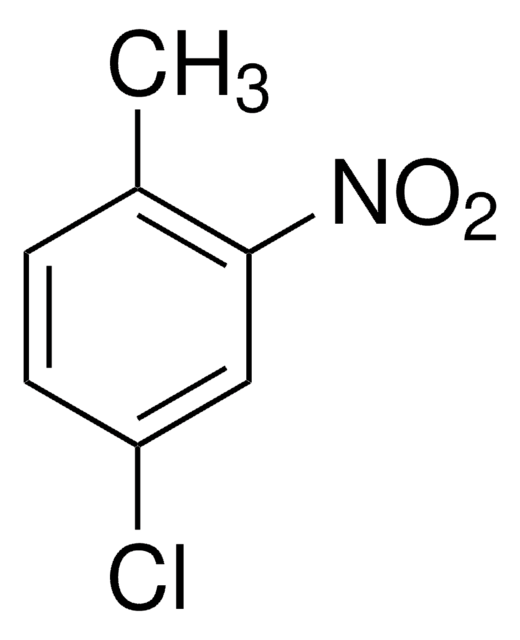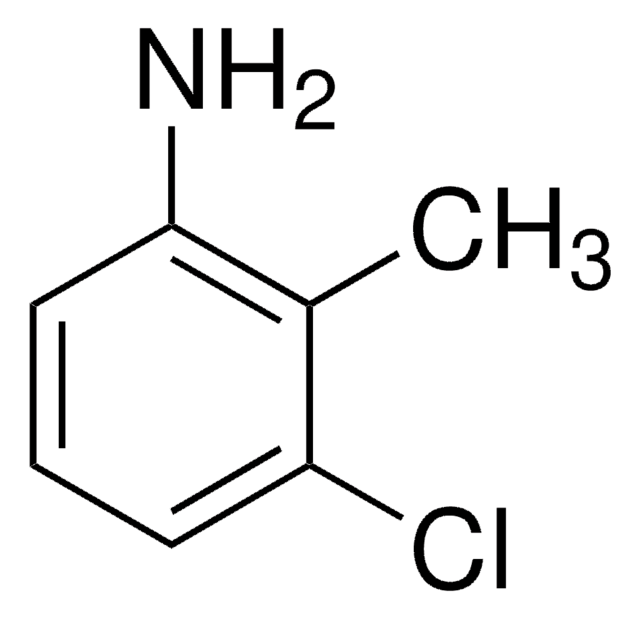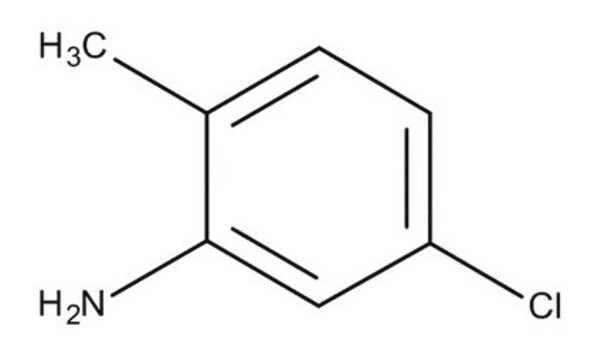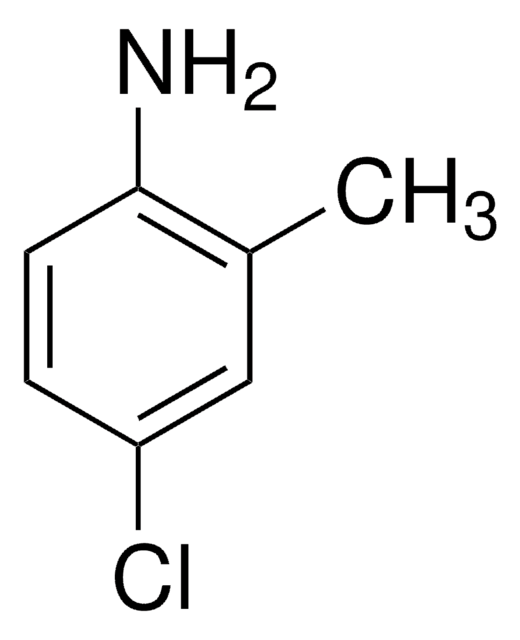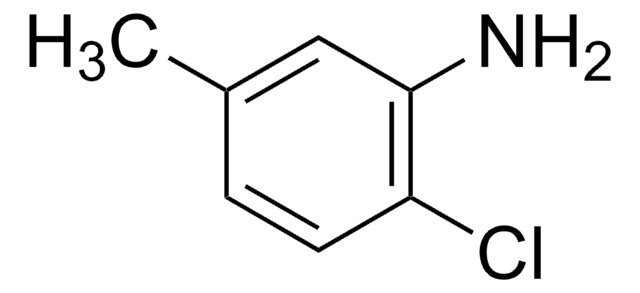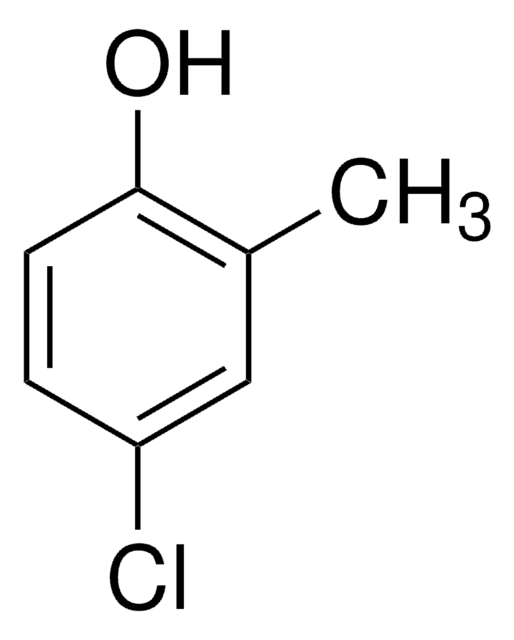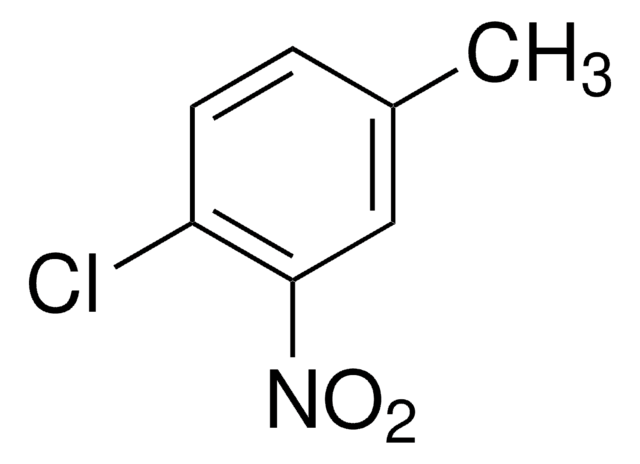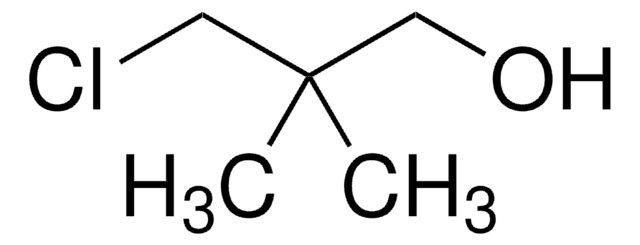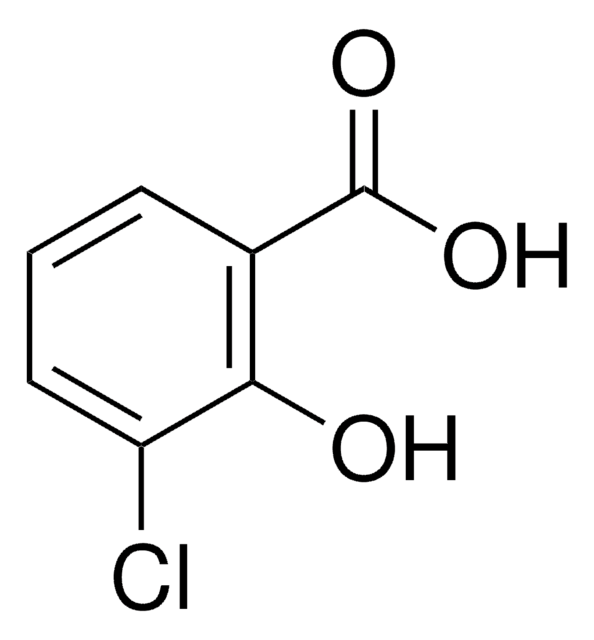236322
2-Chloro-4-aminotoluene
98%
Synonym(s):
3-Chloro-4-methylaniline, 3-Chloro-p-toluidine, 4-Amino-2-chlorotoluene
About This Item
Recommended Products
Quality Level
Assay
98%
form
solid
refractive index
n20/D 1.584 (lit.)
bp
237-238 °C (lit.)
mp
24-25 °C (lit.)
density
1.167 g/mL at 25 °C
functional group
chloro
storage temp.
2-8°C
SMILES string
Cc1ccc(N)cc1Cl
InChI
1S/C7H8ClN/c1-5-2-3-6(9)4-7(5)8/h2-4H,9H2,1H3
InChI key
RQKFYFNZSHWXAW-UHFFFAOYSA-N
Looking for similar products? Visit Product Comparison Guide
Application
Signal Word
Danger
Hazard Statements
Precautionary Statements
Hazard Classifications
Acute Tox. 3 Dermal - Acute Tox. 3 Oral - Aquatic Acute 1 - Aquatic Chronic 1 - Eye Irrit. 2 - Skin Irrit. 2 - Skin Sens. 1
Storage Class Code
6.1C - Combustible acute toxic Cat.3 / toxic compounds or compounds which causing chronic effects
WGK
WGK 3
Flash Point(F)
212.0 °F - closed cup
Flash Point(C)
100 °C - closed cup
Personal Protective Equipment
Choose from one of the most recent versions:
Already Own This Product?
Find documentation for the products that you have recently purchased in the Document Library.
Our team of scientists has experience in all areas of research including Life Science, Material Science, Chemical Synthesis, Chromatography, Analytical and many others.
Contact Technical Service